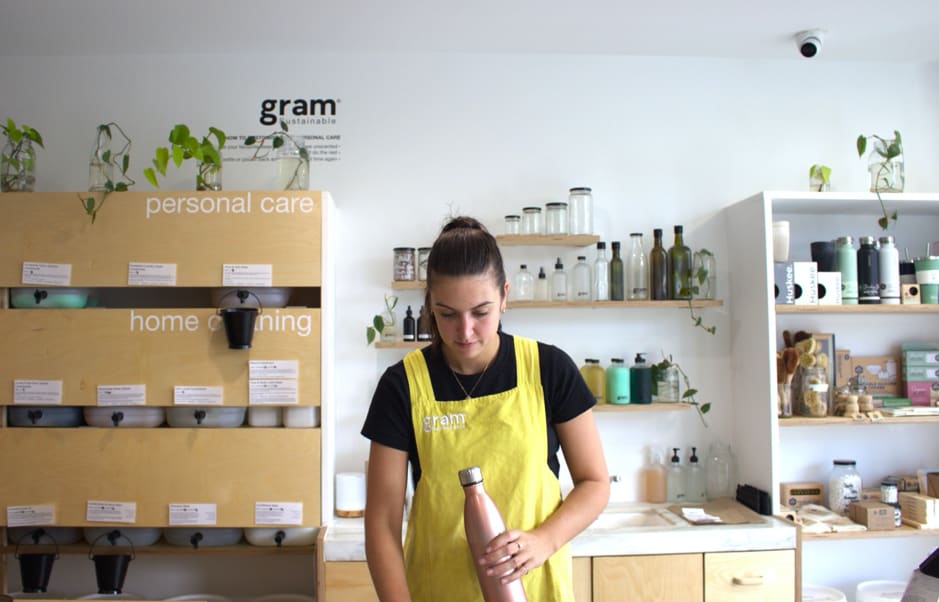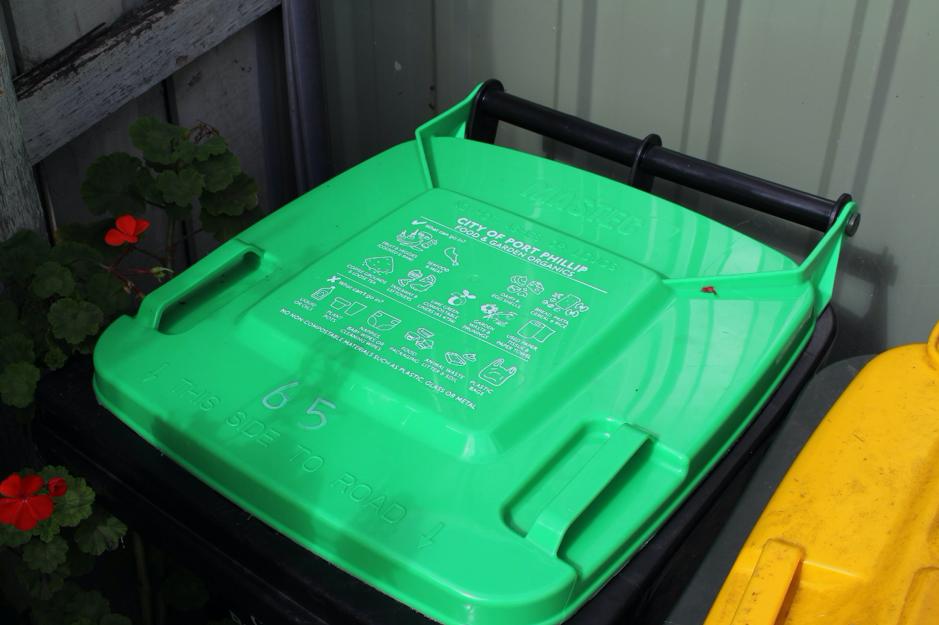
Read the Charter of Independence here.
BY DANIELLE ROCHE
After digging into a hearty soup while sheltering from Melbourne’s icy winds, or enjoying an end-of-semester celebratory meal with friends, you may find yourself wondering about the impact of all those plates scraped into the bin.
You are not alone. The 2023 Green Report on consumer attitudes to climate action, by financial comparison site Finder, shows the number of Australians concerned about their carbon footprint is on the rise – up by 2 per cent from last year.
There are good reasons to be alarmed. According to Sustainability Victoria, local households are each throwing away about $2,200 worth of food per year, which adds up to 250,000 tonnes collectively.
Also, the National Food Waste Strategy Feasibility Study found Australian households are throwing away about one in five bags of groceries a year, with an annual cost to the economy of about $36.6 billion.
But bulk food store Gram Sustainable is one Melbourne business using sustainable practices to reduce food waste.
Gram Sustainable Elwood assistant manager Matilda Boutcher says the business aims to help the public access alternative ways of shopping to tackle overconsumption.
“The mission is quite simple: to reduce the amount of single-use plastic in the world and what’s being put into our environment,” Ms Boutcher says.
Bulk-food purchasing is one method of reducing waste, she says. Customers can bring their own containers to re-fill and re-use existing material, without buying another disposable container. It also allows customers to buy only the amount they require.

Ms Boutcher says she saw the impact of Gram Sustainable’s alternative business model at its recently launched branch in the bayside suburb of Elwood.
“Since opening Elwood, I’ve been able to see a massive difference. Everyone coming in will be telling us, ‘It’s so much better now’,” she says.
Customers are grateful to have a way of shopping that reduces waste and alleviates guilt, she adds.
Meanwhile, the local government is also aiming to reduce the environmental impact of food waste.
Port Phillip City Council in January introduced a kerbside Food and Organics (FOGO) service to reduce the local government area’s impact on the environment and to divert more waste from landfill.
Port Phillip mayor Heather Cunsolo says there is an eagerness in the community to take advantage of the service.
“We continue to see low contamination levels and high community uptake of our communal food organics recycling hubs,” Ms Cunsolo said.
The kerbside system is having an impact, she says: in the four months from last November to February, some 170.1 tonnes more FOGO material was diverted from landfill and recycled.

As a result, the council has decided to expand both its hubs and kerbside FOGO services.
“We will be expanding these hubs to approximately 70 sites throughout the municipality to provide better access for those residents who are not able to take part in the kerbside FOGO service,” Ms Cunsolo says.
In mid-2023, the council also plans to expand the kerbside service to include eligible apartments and units, she says.
Gram Sustainable also sees the value of building an environmentally friendly food cycle.
In addition to zero-plastic packaging and weigh-your-own ingredients, the store uses closed-loop systems with suppliers wherever possible.
A closed-loop system involves the continual re-use of a container by both the store and supplier. The store may receive the product in the container, sell the product, then return the container to the supplier to refill with more product for sale again.

“Not everyone is accommodating but we try and align ourselves [with] people that are,” Ms Boutcher says.
She believes the impact of Gram Sustainable’s practices is appreciated by both customers and business partners, with suppliers adopting closed-loop systems due to doing business with the store.
“We can show them there is the demand and that makes them change,” she says.
“I think opening their minds and showing them that this is the way forward, and that people do want to purchase like this …
“Them actually making those changes in their business shows our impact.”

Meanwhile, Australia’s big supermarket chains have steps ahead of them on the path to sustainable practices.
Both Coles and Woolworths scored above average in a recent ranking of thousands of companies’ Sustainable Development Goals (SDGs), conducted by Sustainable Platform. Coles scored 62, and Woolworths 52, with the average company ranking being 50.
But it is near-impossible to shop plastic-free at their stores. Moreover, up to 40 per cent of fresh produce is wasted before going on supermarket shelves, according to a recent Food Waste Avoidance benchmark study by the New South Wales Environment Protection Authority.
Gram Sustainable’s Ms Boutcher believes the primary obstacle to consumers transitioning to environmentally friendly shopping habits is the perception of supermarkets as convenient.
“The mental behavioural patterns that they have is probably the biggest challenge,” she says.
“They’re receptive but transitioning their full habits into it is a constant reminder and constant education.”